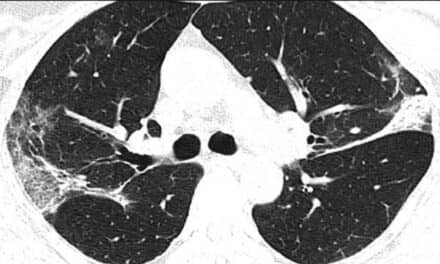People who are at high risk of developing lung cancer, such as heavy smokers, are routinely screened with CT, which can detect tumors in the lungs. However, it can be difficult to distinguish developing tumors from benign nodules.
Now researchers from the Massachusetts Institute of Technology. (MIT) has developed a urine test that can detect the presence of proteins linked to lung cancer.
“If you look at the field of cancer diagnostics and therapeutics, there’s a renewed recognition of the importance of early cancer detection and prevention. We really need new technologies that are going to give us the capability to see cancer when we can intercept it and intervene early,” says Sangeeta Bhatia, MD, PhD, who is the John and Dorothy Wilson Professor of Health Sciences and Technology and Electrical Engineering and Computer Science, and a member of MIT’s Koch Institute for Integrative Cancer Research and the Institute for Medical Engineering and Science.
Bhatia and her colleagues found that the new test, which is based on nanoparticles that can be injected or inhaled, could detect tumors as small as 2.8 cubic millimeters in mice.
For several years, Bhatia’s lab has been developing nanoparticles that can detect cancer by interacting with enzymes called proteases. These enzymes help tumor cells to escape their original locations by cutting through proteins of the extracellular matrix.
To find those proteins, Bhatia created nanoparticles coated with peptides (short protein fragments) that are targeted by cancer-linked proteases. The particles accumulate at tumor sites, where the peptides are cleaved, releasing biomarkers that can then be detected in a urine sample.
Read more from MIT News.
Featured image: MIT engineers have developed nanoparticles that can be delivered to the lungs, where tumor-associated proteases cut peptides on the surface of the particles, releasing reporter molecules. Those reporters can be detected by a urine test. Image courtesy of MIT.






